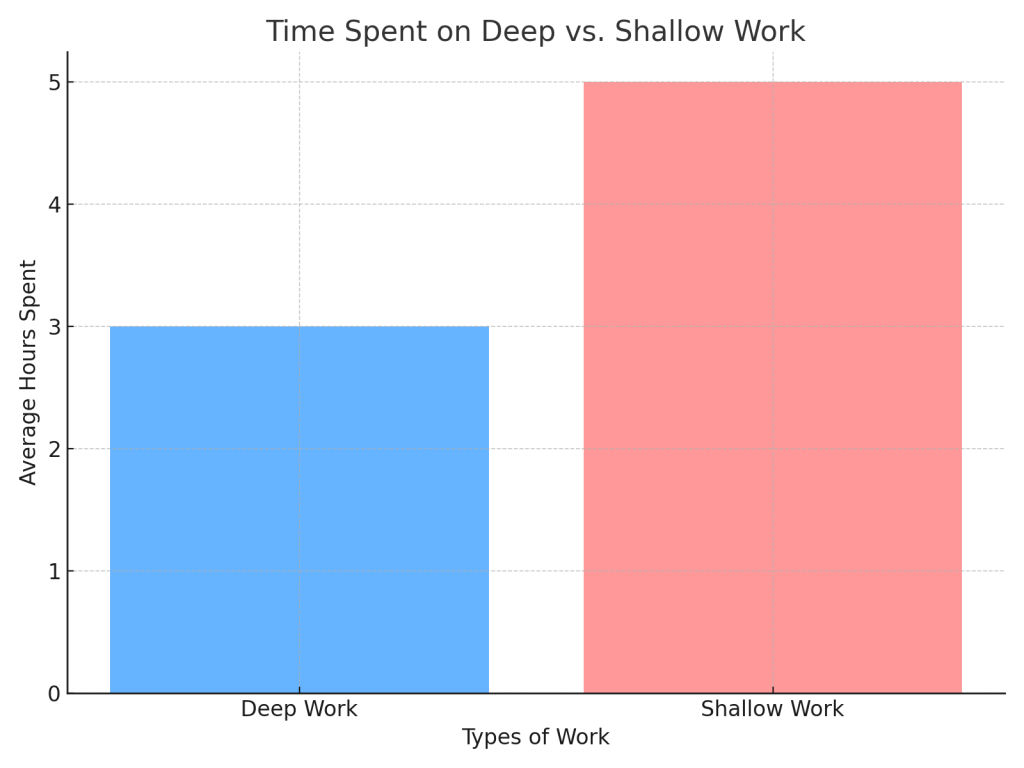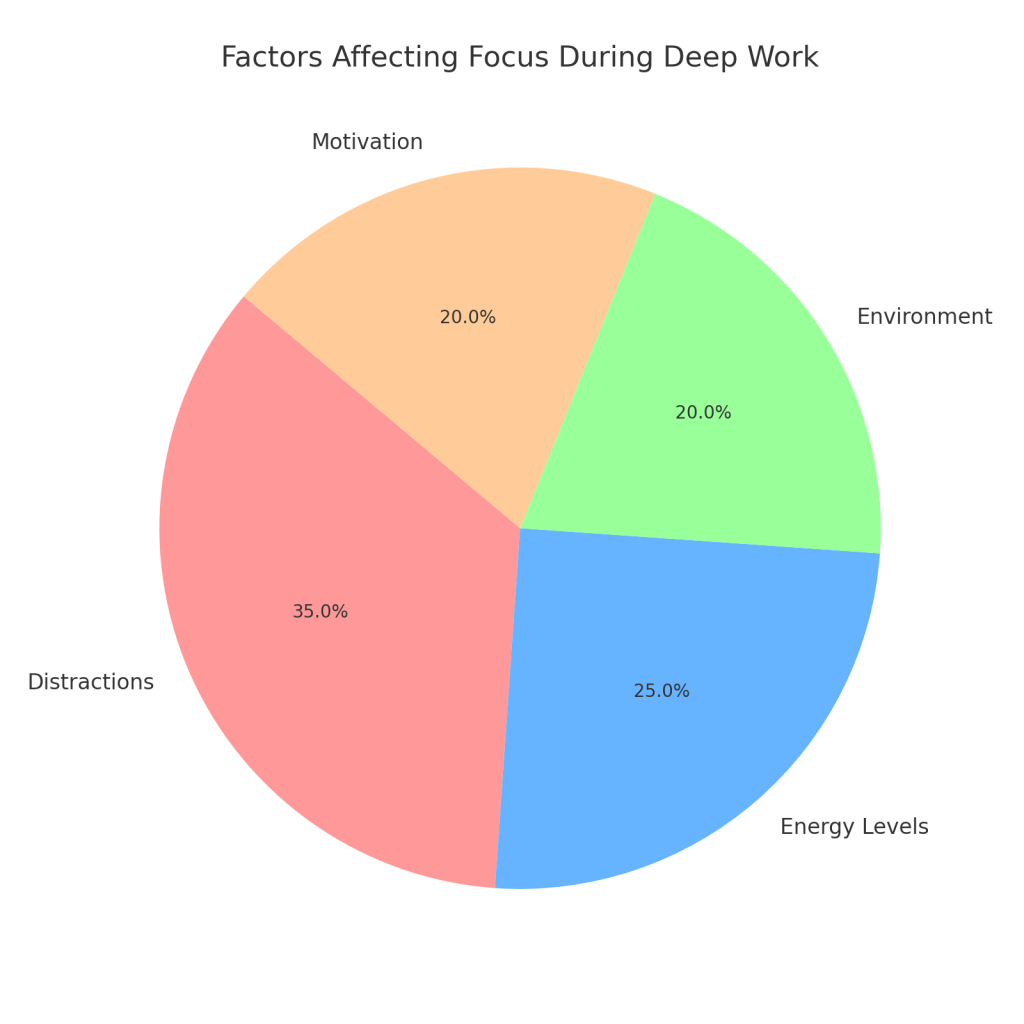In a world filled with constant distractions, mastering deep work has become a critical skill for professionals aiming to achieve maximum efficiency. Coined by productivity expert Cal Newport, deep work refers to the ability to focus without distraction on cognitively demanding tasks. It’s a state where you produce high-quality work in less time, making it a game-changer for professionals across industries. Whether you’re a software developer in Sydney or a creative professional in Melbourne, the principles of deep work can help you achieve your goals more efficiently. This guide explores actionable strategies to master deep work and reclaim your focus.
What Is Deep Work and Why Does It Matter?
Deep work is the antidote to shallow tasks that consume our time without meaningful output. Activities like checking emails, attending unproductive meetings, and browsing social media are examples of shallow work. In contrast, deep work involves intense focus on tasks that require skill and creativity, such as writing, coding, or designing. The benefits of deep work include:
- Higher Productivity: You achieve more in less time.
- Skill Development: Mastery in complex areas requires sustained focus.
- Job Satisfaction: Completing meaningful work enhances career fulfillment.
In Australia’s dynamic professional landscape, where innovation and efficiency are valued, mastering deep work can provide a competitive edge.
Strategies to Master Deep Work
1. Designate a Deep Work Environment
Creating a workspace conducive to focus is crucial. This could mean setting up a quiet home office, finding a library in Brisbane, or booking a coworking space in Perth. Eliminate distractions by:
- Decluttering your desk.
- Using noise-cancelling headphones.
- Turning off notifications on your devices.
Pro Tip: Use apps like Cold Turkey or Freedom to block distracting websites during deep work sessions.
2. Establish Clear Goals
Clarity is key to staying on track. Before starting a deep work session, define your objectives. For example:
- “Complete the first draft of a report.”
- “Solve three complex coding problems.”
- “Create a marketing strategy outline.”
Break larger goals into smaller, actionable steps to maintain momentum.
3. Follow a Time Management Framework
Structuring your time enhances focus. Popular methods include:
- The Pomodoro Technique: Work for 25 minutes, take a 5-minute break, and repeat.
- Time Blocking: Allocate specific hours of your day to deep work tasks.
- The 90-Minute Rule: Focus intensely for 90 minutes, followed by a longer break.
Experiment with these methods to find what works best for your workflow.
4. Train Your Focus Like a Muscle
Just as physical strength builds through exercise, mental focus strengthens with practice. Start with short deep work sessions and gradually increase their duration. Techniques to improve focus include:
- Meditation: Apps like Calm or Insight Timer offer guided sessions.
- Mindfulness Exercises: Spend a few minutes each day observing your thoughts without judgment.
- Focus Challenges: Set a timer for 10 minutes and commit to uninterrupted work during that time.
5. Manage Your Energy Levels
Deep work requires not just time but also mental energy. Optimise your energy by:
- Prioritising Sleep: Aim for 7–8 hours of quality sleep per night.
- Eating for Brain Health: Include foods rich in omega-3s, antioxidants, and proteins.
- Scheduling Breaks: Take short, restorative breaks to recharge.
Australians can take advantage of their beautiful outdoor spaces, such as beaches or parks, for rejuvenating walks during breaks.
6. Embrace Monotasking
Multitasking splits your attention and reduces efficiency. Instead, embrace monotasking, where you focus on one task at a time. Strategies include:
- Closing unnecessary tabs and apps.
- Using tools like Trello to organise tasks and priorities.
- Setting boundaries by letting colleagues or family know you’re in a deep work session.
7. Create Rituals to Enter Deep Work
Rituals signal your brain to transition into deep focus. Examples include:
- Starting each session with a specific playlist or scent.
- Using a consistent workspace.
- Reviewing your goals before beginning.
For instance, a graphic designer in Melbourne might begin each deep work session by sketching for five minutes to spark creativity.
Overcoming Challenges to Deep Work
Distractions
Use strategies like silencing notifications, setting “do not disturb” statuses, and working in a distraction-free environment.

Motivational Slumps
When motivation dips, revisit your goals and remind yourself of the rewards of deep work. Positive reinforcement can rekindle your focus.
Overcommitment
Avoid overloading your schedule with shallow tasks. Learn to say “no” to non-essential activities and protect your deep work time.
Table: Deep Work vs. Shallow Work
| Aspect | Deep Work | Shallow Work |
|---|---|---|
| Focus Required | High | Low |
| Examples | Writing a report, coding, problem-solving | Checking emails, attending routine meetings |
| Value to Career | Long-term growth | Minimal impact |
| Energy Drain | High but rewarding | Low but often unproductive |
Conclusion
Mastering deep work is a transformative skill that empowers you to produce exceptional results with efficiency. By creating a conducive environment, setting clear goals, and managing your energy effectively, you can achieve a state of deep focus and elevate your professional performance. In Australia, where innovation and excellence are paramount, embracing deep work principles can position you as a leader in your field. Start implementing these strategies today and experience the profound impact of deep work on your productivity and career success.




